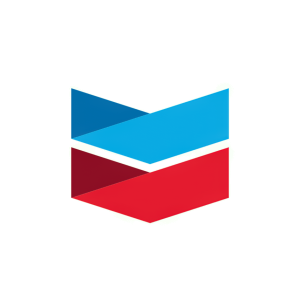U.S. Court of Appeals Affirms Contempt Rulings Against Disbarred Lawyer Behind Fraudulent Ecuadorian Lawsuit
The U.S. Court of Appeals for the Second Circuit has upheld findings against disbarred attorney Steven Donziger for contempt related to his fraudulent Ecuadorian judgment against Chevron. The court confirmed that Donziger engaged in racketeering, including bribery and ghostwriting, violating the RICO Act. As a result, he is barred from profiting from the Ecuadorian judgment. The ruling further affirms Chevron's stance in a long-standing dispute, with an international tribunal previously labeling the Ecuadorian judgment as fraudulent and unenforceable.
- Chevron's position is strengthened with the court's ruling against Donziger, further validating its claims of fraud.
- The international tribunal's prior ruling supports Chevron's stance, dismissing environmental claims against it.
- None.
The United States Court of Appeals for the Second Circuit today affirmed multiple findings of civil contempt against disbarred attorney Steven Donziger, effectively bringing to a close his campaign to profit from the fraudulent Ecuadorian judgment he procured in violation of the Racketeer Influenced and Corrupt Organizations (“RICO”) Act.
As the Second Circuit today observed, it has been finally adjudicated that Donziger “fraudulently procured the Ecuadorian Judgment against Chevron through a pattern of racketeering activity.” The court also noted “Donziger, among other things, bribed the presiding judge to enter a judgment in his clients’ favor in exchange for
In today’s ruling, the Second Circuit agreed with “the district court’s conclusions that Donziger acted in contempt of the Injunction that resulted from the RICO Judgment in numerous ways,” including Donziger’s failure to transfer his interest in the fraudulent Ecuadorian judgment to Chevron, transferring a portion of his interest in the judgment in exchange for personal services, transferring and dissipating his assets in violation of his obligations as a judgment debtor, and disregarding discovery orders. The court noted that for the most part Donziger did “not even attempt to challenge the district court’s findings of his contumacious conduct.” The court reversed other aspects of the district court’s rulings and remanded the case to the district court for determination of the amount of fees Donziger owes Chevron.
The decision rejects Donziger’s attempts to circumvent the RICO judgment. The Second Circuit ruled that, going forward, Donziger “can no longer sell any interests in the Ecuadorian Judgment for any reason, and use the proceeds for his benefit . . . or profit from such sales in any way whatsoever.” The court also upheld the district court’s award of costs against Donziger, because “costs were sought in a litigation in which Donziger has been found liable for engaging in a pattern of racketeering involving corruption of a foreign judiciary resulting in a multi-billion dollar judgment.” The decision acknowledged “the district court’s thorough and fully persuasive fact findings and legal conclusions, which [the Second Circuit] ha[s] already affirmed in full, establishing Donziger’s violations of law and ethics that added up to a pattern of racketeering in violation of the RICO statute.”
U.S. courts are not alone in condemning the Ecuadorian litigation against Chevron. In a separate proceeding, an international tribunal in The Hague previously ruled that the Ecuadorian judgment was procured by the plaintiffs’ legal team through egregious fraud and corruption and is therefore unenforceable under international law. The international tribunal further rejected the environmental allegations against Chevron, holding that the corrupt Ecuadorian judgment was based on environmental claims that had been already settled and released by the Republic of Ecuador years earlier following the successful completion of an environmental remediation carried out under the supervision and with the approval of the Republic of Ecuador.
All efforts to enforce the fraudulent Ecuadorian judgment outside of Ecuador have been rejected. Today’s decision further vindicates Chevron’s position in this long-running dispute.
Chevron Corporation is one of the world’s leading integrated energy companies. Through its subsidiaries that conduct business worldwide, the company is involved in virtually every facet of the energy industry. Chevron explores for, produces and transports crude oil and natural gas; refines, markets and distributes transportation fuels and lubricants; manufactures and sells petrochemicals and additives; generates power; and develops and deploys technologies that enhance business value in every aspect of the company’s operations. Chevron is based in San Ramon, Calif. More information about Chevron is available at www.chevron.com.
View source version on businesswire.com: https://www.businesswire.com/news/home/20210304006182/en/
FAQ
What did the Second Circuit Court rule regarding Steven Donziger on March 4, 2021?
How did the Second Circuit's ruling affect Chevron's legal battles?
What were the allegations against Steven Donziger related to the Ecuadorian judgment?
What impact does the court's decision have on Chevron's interests?







